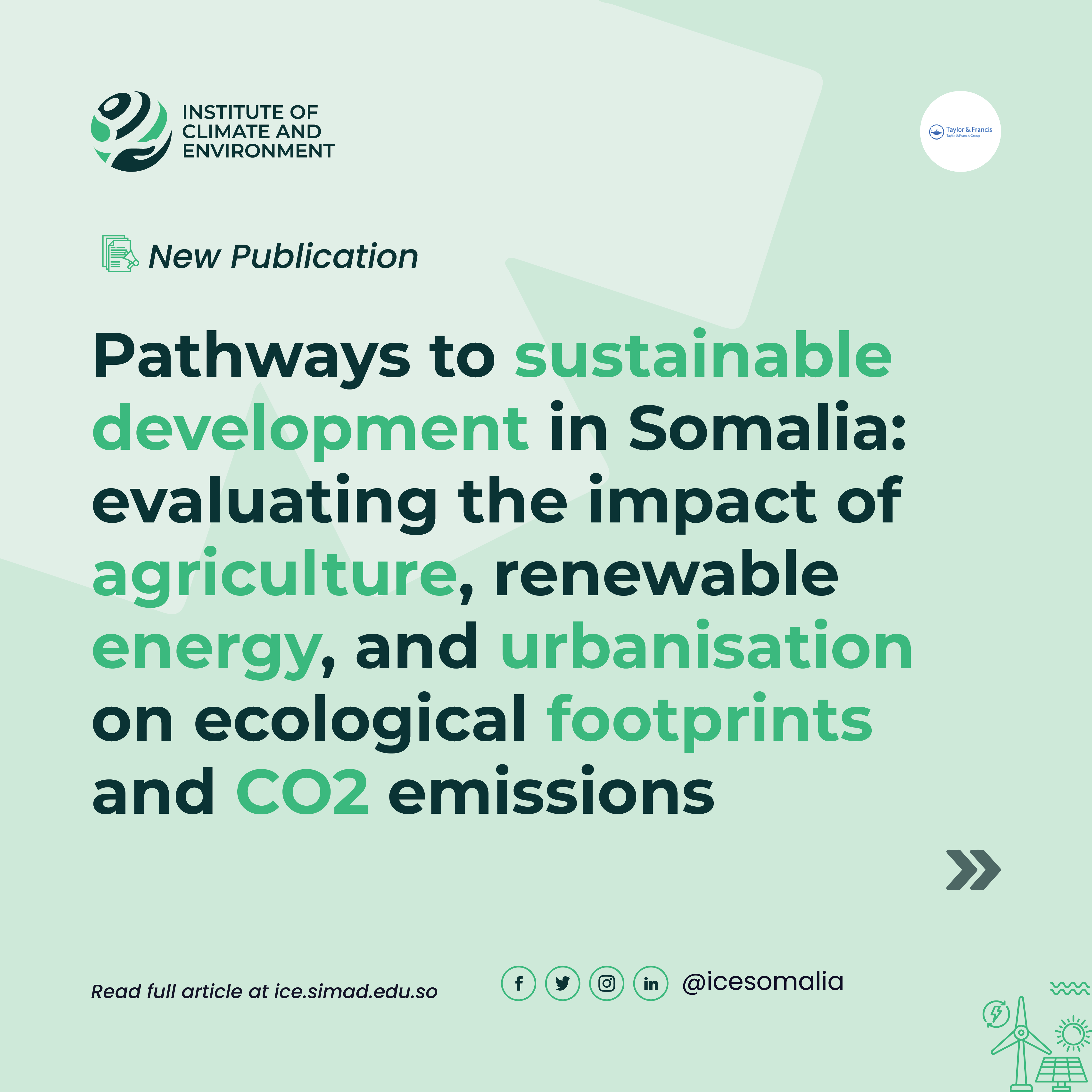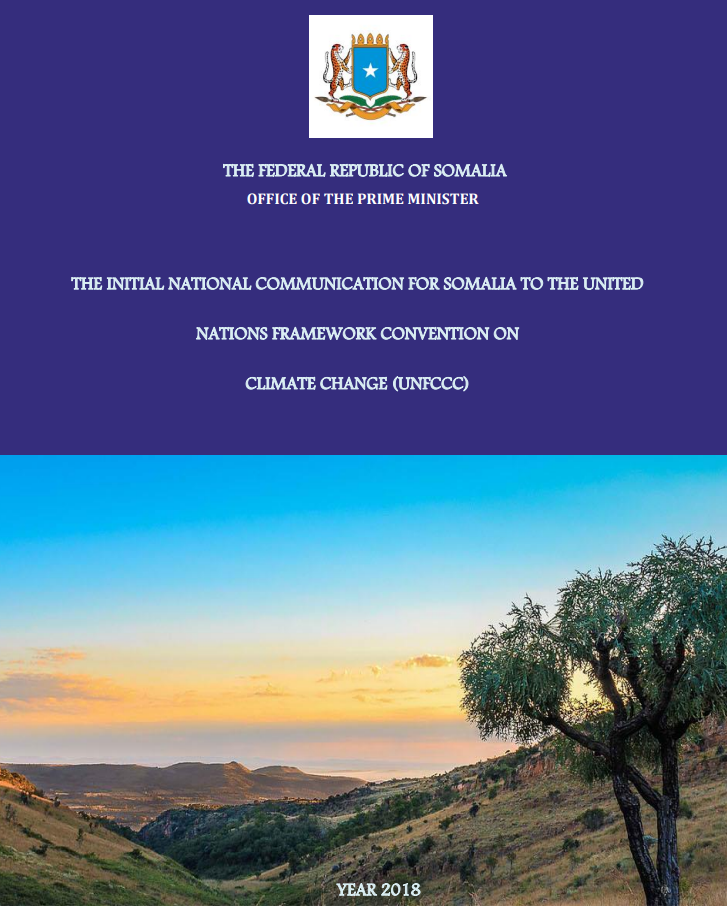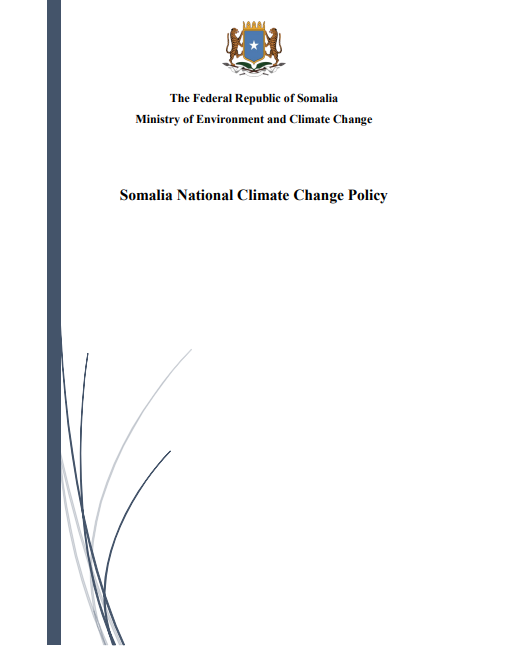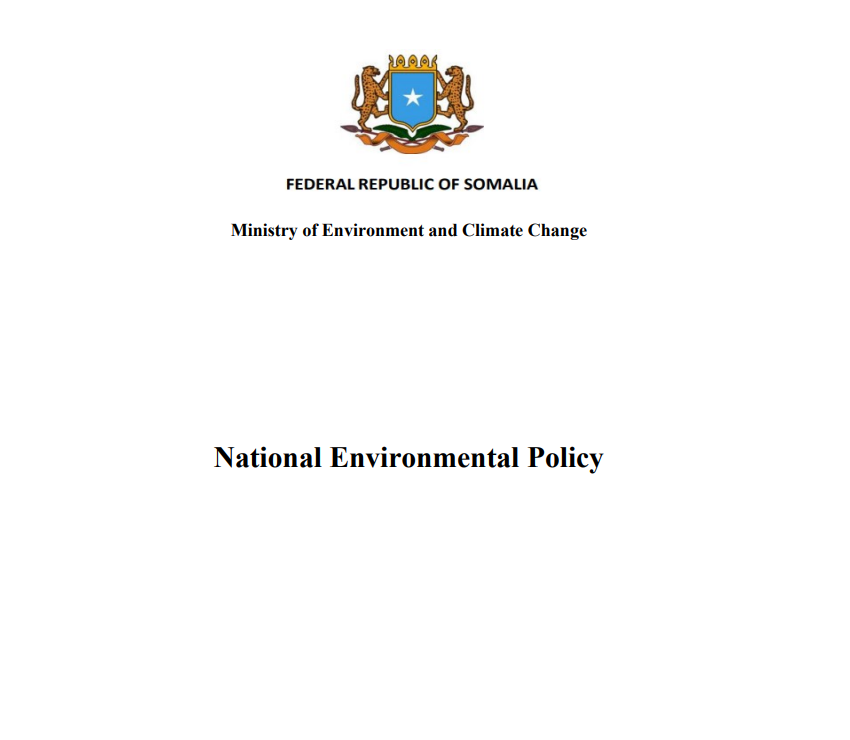Pathways to sustainable development in Somalia: evaluating the impact of agriculture, renewable energy, and urbanisation on ecological footprints and CO2 emissions
The paper investigates the environmental impacts of agriculture, renewable energy, economic growth, and urbanization on Somalia’s ecological footprints and CO2 emissions, using time-series data from 1990 to 2020. The findings reveal that while agriculture and renewable energy significantly reduce both ecological footprints and CO2 emissions in the long run, agri
THE INITIAL NATIONAL COMMUNICATION FOR SOMALIA TO THE UNITED NATIONS FRAMEWORK CONVENTION ON CLIMATE CHANGE (UNFCCC)
The information contained in this Initial National Communication to the UNFCCC includes; national circumstances influencing climate change actions, the steps taken to implement the convention, the national inventory of anthropogenic emissions by sources and removal by sinks of all greenhouse gases (GHGs) not controlled by the Montreal Protocol, actions taken, informat
Somalia National Climate Change Policy
The Federal Republic of Somalia recognizes the urgent need to address the pressing challenges posed by climate change. As a nation in the Horn of Africa, Somalia is acutely vulnerable to the impacts of a changing climate, including extreme weather events, rising sea levels, and disruptions to its ecosystems. To confront these challenges and pave […]
National Environmental Policy
After decades of conflict, Somalia has taken steps towards long-term peace. The country has crafted a National Development Plan as a basis for future plans and policy developments. Against this background, the National Environment Policy is a response to our national commitment to a clean environment, mandated in the Provisional Constitution under Articles 25, 45, [&h







